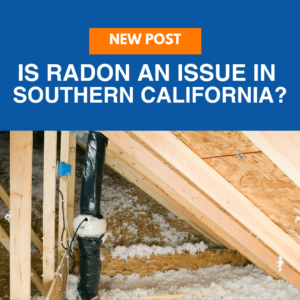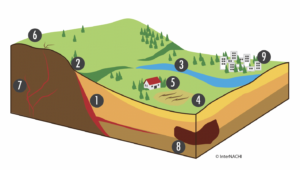Is radon an issue in Southern California? Radon is a potentially dangerous gas that can be found in homes throughout Southern California, as well as other regions of the United States. Radon is a naturally occurring radioactive gas that can seep into homes and buildings through cracks in foundations, walls, and other openings. Radon is odorless, colorless, and tasteless, so it can often go undetected for long periods. The dangers of radon come from its ability to build up in the air, which can be breathed in and cause health issues.

Is radon an issue in Southern California?
The California Department of Public Health (CDPH) recommends that all homes in California be tested for radon levels. Radon testing is the only way to know if a home is safe from the potential health risks associated with elevated radon levels. Testing can be performed by a certified professional or through a do-it-yourself kit.
At Signature Home Inspection, we offer radon testing services to homeowners in Southern California. Our certified professionals have the expertise and knowledge to measure the radon levels in homes and buildings accurately. We also offer a radon testing kit, which allows homeowners to conduct their testing. The kit is easy to use and provides accurate results in a matter of hours.
Radon testing is an essential step in ensuring the safety of your home and family. The CDPH recommends that all homes in California be tested every two years, as radon levels can change over time. It’s essential to have your home tested regularly to ensure that you and your family are not exposed to dangerous levels of this radioactive gas.
At Signature Home Inspection, we are committed to providing our customers with the best service possible. Our certified professionals have the expertise and knowledge to measure the radon levels in your home accurately. We also offer a radon testing kit, which allows homeowners to conduct their testing. Whether you choose to have your home tested by a professional or with a do-it-yourself kit, we are here to help.

